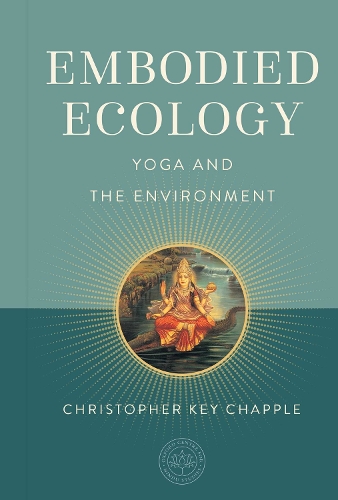
Embodied Ecology: Yoga and the Environment
(Hardback, Export)
Publishing Details
Embodied Ecology: Yoga and the Environment
By (Author) Christopher Key Chapple
Mandala Publishing Group
Mandala Publishing Group
18th June 2025
Export
United States
Classifications
General
Non Fiction
Hinduism
History of religion
Conservation of the environment
Physical Properties
Hardback
320
Width 152mm, Height 229mm
515g
Description
In Embodied Ecology, Hindu Studies scholar Christopher Key Chapple explores how Hindu and Yoga traditions can inform contemporary discourse about the problems of environmental degradation both in India and globally.
What do Hinduism and Yoga philosophy have to say about ecology and the environment Christopher Key Chapple provides an in-depth analysis of the traditional texts and ideas that relate to modern concerns and conversations in the environmental movement. Chapple explains what ancient Indian texts, including the Vedas and Upaniads, tell us about the centrality of earth-awareness in early India. Chapple then also examines how contemporary eco-activists, such as Vandana Shiva, M.C. Mehta, and Sunderlal Bahuguna, are applying traditional teachings and methods to current environmental crises.
Embodied Ecology highlights how Hindu and Yoga ideals can address pressing environmental problems including global consumerism, the proliferation of plastic waste, species extinctions, and climate change. Chapple offers insights on how Yoga ethics can help us create guidelines for the modern ills of over-consumption and how meditation practices can help foster a greater connection to the environment, as well as alleviate distress brought about by eco-anxiety.
Under Chapples guide, students will gain familiarity with primary Hindu texts describing methods for understanding and connecting with the five primary elements and learn Yoga practices and lifestyle changes that can be applied to bring about positive change on both a global and individual level.
Author Bio
Christopher Key Chapple is Doshi Professor of Indic and Comparative Theology and founding director of the Master of Arts in Yoga Studies at Loyola Marymount University. He has authored more than twenty books, including Karma and Creativity; Nonviolence to Animals, Earth, and Self in Asian Traditions; and Yoga and the Luminous; Living Landscapes: Meditations on the Elements in Hindu, Buddhist, and Jain Yogas. Chapple serves on the advisory boards for the Forum on Religion and Ecology (Yale), the Ahimsa Center (Pomona), the Jaina Studies Centre (London), the Dharma Academy of North America (Berkeley), the Uberoi Foundation (Denver), the South Asian Studies Association (Los Angeles), and the International School for Jain Studies (Delhi).
